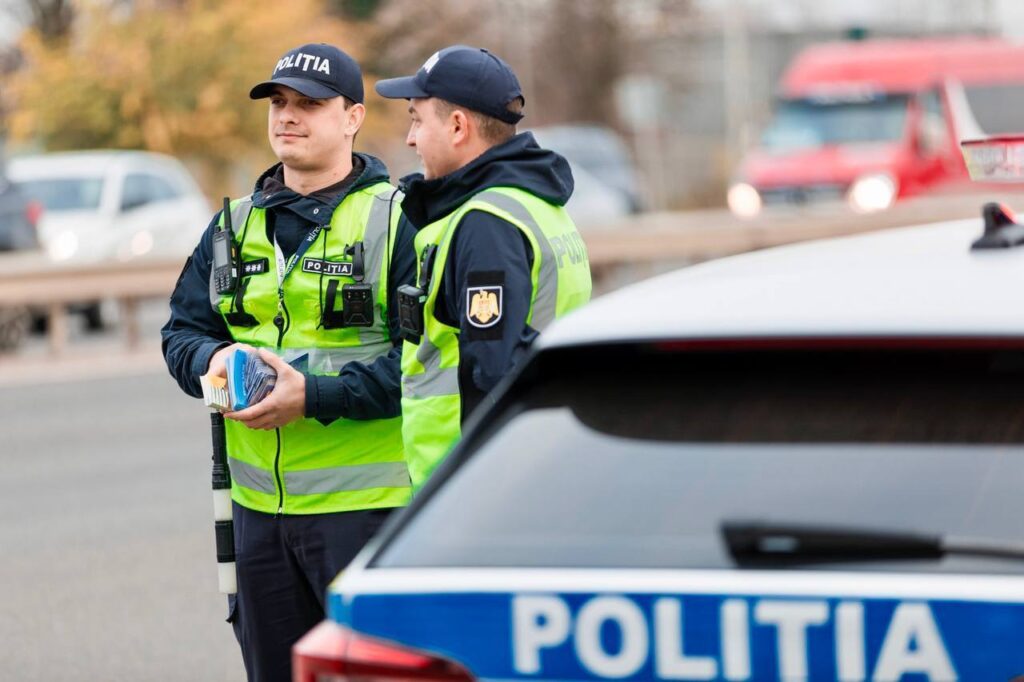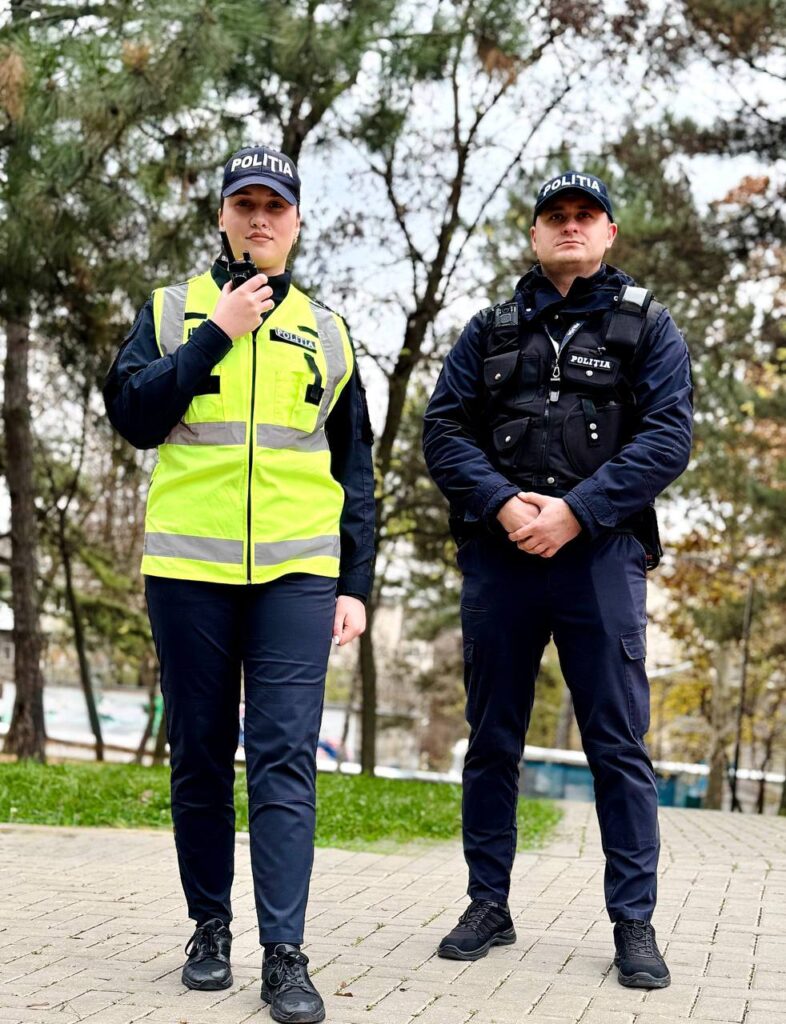The first ten months of this year have brought a visible acceleration in the pace of reforms in public order, security, and crime prevention. Through a series of normative acts, national programmes, and structural transformations, the Ministry of Internal Affairs has focused its efforts on a common goal: to improve the quality of life through greater safety, more efficient public services, and stronger protection against both traditional and emerging risks.
These changes are not merely technical measures or administrative adjustments. They represent direct investments in people’s daily lives: in the protection of children, in the confidence that the state responds promptly when needed, in the safety of public spaces, in digital security, and in a modern justice system.
A more effective public order architecture: Police and Carabiniers closer to communities
The broad reform of the institutions responsible for maintaining public order lies at the core of this progress. Updating the legal framework – from modernising the Law on police and the status of the police officer (Law 320/2012) and the Law on the General Inspectorate of Carabinieri (Law 219/2018) to adjusting the Government Decisions regulating the organisation and operation of the two entities (GD 547/2019 and GD 332/2019) – has, for the first time in the past decade, established a clear division of responsibilities between the Police and the Carabinieri.
The three types of missions – maintaining, ensuring, and restoring public order and security -are now defined in a clearer and more coherent manner, and this operational architecture has direct effects on people’s lives.
It ensures coordinated interventions without unnecessary overlaps, significantly shorter response times to incidents, and a stronger presence across the country, reinforced by the three new regional Police directorates (North, Centre, South). At the same time, the five Carabinieri companies, reorganised according to modern principles of mobility and action, complement this mechanism by providing communities with more evenly distributed, more visible, and better-prepared interventions, ready to respond quickly whenever the situation requires it.
The ultimate aim is to build an institutional architecture capable of responding swiftly to everyday risks as well as crisis situations. In this way, citizens gain time, security, and predictability.
Better protection at public events and in crowded spaces
For people, the difference is immediately noticeable: events become safer, better organised, and with reduced risks of violence or incidents. Attending a concert, festival, fair, or football match now means a more predictable, protected, and closely monitored environment.
This result comes from two key measures. The first is Government Decision 374/2025, which aligns Moldova with European safety standards during international football matches. By establishing the National Football Information Point, authorities can rapidly identify disruptive groups and prevent clashes.
The second is the new Law on the organisation and running of public events (passed in first parliament reading), which modernises the rules governing concerts, festivals, and national celebrations. Responsibilities are clearly defined, procedures are standardised, and the level of public protection increases significantly.
At the centre of these changes lies a single objective, namely to ensure that every citizen can enjoy public spaces in a safe and well-managed environment.
Strengthened digital security: protecting children and citizens online
Digital security has become a race against time in an increasingly aggressive and unpredictable online environment – a space where children, teenagers, and adults are exposed to risks that multiply by the day.
In this tense context, the Government Decision 317/2025 introduces a decisive intervention: blocking platforms used to prepare criminal activities and removing illegal content directly at the source. It is a step that changes the rules of the game because it shifts protection to the very place where danger begins – the virtual environment.
For citizens, the effects are immediate and easy to notice. The new measures create real protection against online fraud, manipulation, and scams; reduce minors’ exposure to abusive content through a far more efficient system for controlling illegal materials; and enable rapid interventions due to strengthened cooperation between the state and internet providers. Thus, the digital environment becomes a safer space where risks are detected more quickly, and citizens benefit from increased protection in their day-to-day online activities.
In an era in which digital attacks are no longer an exception but a routine, this measure marks a necessary leap forward: online security moves to the forefront, becoming an essential line of defence for every family and for society as a whole.
Strict control over firearms and explosives: European standards, national safety
A new package of regulations is transforming the way the state protects people from risks related to firearms, ammunition and explosives. The introduction of the European Firearms Pass (Law 130/2012 – passed in first parliamentary reading), the approval of the National Firearms Control Programme for 2026–2030 (GD 521/2025), the modernisation of protection of data in the State Firearms Register (GD 300/2025), and the new rules on civil-use explosives (GD 588/2025) create a stricter and much safer control system.
For people, these changes translate into concrete benefits: reduced risk of illegal trafficking, far more accurate records of firearms and ammunition, prevention of unwanted incidents, and firm control over dangerous materials. The result is a safer environment in which the state acts proactively and citizens enjoy a higher level of protection in their daily lives.
5. Safer roads: responsibility and international cooperation
The efforts of the Ministry of Internal Affairs continue to make road safety a core element of governance, ensuring that every citizen can feel safe while traveling on public roads. Through Government Decision 538/2025, Moldova joins the European system for exchanging data on road traffic violations committed with vehicles registered in other countries, strengthening traffic monitoring and accountability.
For people, the impact is immediate and visible: aggressive driving behaviour is discouraged, drivers’ responsibility increases, and the protection of pedestrians, cyclists, and other traffic participants becomes stronger, creating a safer and more predictable traffic environment.
Efficient justice through digitalisation: “e-Case” and electronic offences
Digitalisation represents one of the most important transformations within the Ministry of Internal Affairs, bringing tangible benefits to citizens and society. The “e-Case” system (GD 267/2025; Law 43/2025) eliminates paper-based files, provides law enforcement with rapid access to all relevant information, reduces bureaucracy, and increases transparency. Through GD 146/2025, the examination of administrative offences moves to an electronic format using digital signatures, ensuring fast, simple, and accessible procedures without the need for additional visits to institutions.
For citizens, this digitalisation means immediate access to information, quicker decisions from authorities, prompt responses in risk situations, and public services that are more efficient and user-friendly. The system enables precise and coordinated interventions, eliminating time wasted on collecting documents or in-person visits to institutions, and increasing safety and comfort in daily life.
Protection of critical infrastructures and public safety
Protecting critical infrastructures is more than a technical concept: it is a shield that ensures people’s daily safety. Through Law 223/2025, Moldova strengthens protection over essential infrastructures, including energy networks, transport, communications, water supply, without which daily life would be immediately disrupted.
In particular, protection of digital infrastructures and internet networks reduces vulnerabilities to cyberattacks, which can affect communication, electronic services, and access to vital information. Through security and continuous monitoring measures, authorities can prevent major disruptions in critical services and respond quickly in crisis situations, enhancing safety and stability for the entire society.
In simple terms, protecting critical infrastructures means a safer life, functional essential services, and stability in daily activities, whether commuting to work, using the internet, travelling, or accessing resources. It is a strategic measure that makes the security of the state and citizens tangible and visible to everyone.
Protection of women and children against violence
The national information system “VioData”, established by Government Decision 530/2025, brings a real change in how Moldova responds to violence against women and domestic violence. It centralises all relevant information, providing authorities with a complete and up-to-date overview of each case.
For victims, the benefit is immediate and concrete: rapid and coordinated interventions, timely support from the police, social services, and healthcare institutions, eliminating delays that can threaten lives.
For society as a whole, VioData ensures real protection and efficient monitoring of violence, increasing the authorities’ capacity to prevent and manage critical situations. Citizens experience the direct effect: greater safety, more trust in institutions, and a community that is more responsible and attentive to vulnerable individuals.
Faster crisis response and efficient field interventions
The modernisation of operational management through Government Decision 454/2025 brings tangible and visible benefits to citizens. This decision regulates the recording of reports and public order events, developing institutional capacities for prompt and adequate response to crises.
By implementing the automated information system “Management of Intervention Missions of Ministry of Internal Affairs Institutions”, interventions are coordinated in real time, allowing resources to reach the locations where they are mostly needed quickly and to be used efficiently.
For citizens, this means faster responses to emergency calls, better-coordinated interventions, and reduced critical response times in situations that threaten life, health, or property. In addition, public safety becomes more tangible, and citizens directly experience the effect of a prompt, professional, and efficient response from the authorities.
Combating modern crime: National Programme 2026–2030
The National Programme for Crime Prevention and Combating 2026–2030 (GD 654/2025) provides concrete solutions to the complex challenges of a constantly evolving modern society. It addresses cybercrime, digital violence, organised crime networks, and promotes international police cooperation, demonstrating real adaptability to the diverse risks of the 21st century: from sophisticated online fraud and cyberattacks to the influence of cross-border networks on public safety.
For citizens, this Programme means proactive and modern protection, capable of preventing and responding effectively to current threats, ensuring safety and stability within an interconnected European space.
The development and modernisation of the programmes adopted this year reflect the Ministry of Internal Affairs’ commitment to continuously strengthen the system through public policies adapted to the real needs of citizens. By maintaining the European trajectory, the Ministry reinforces its role as a guarantor of public safety and order, contributing to the creation of a safer, higher-quality, and more predictable living environment for all.
The citizen remains at the heart of the institution’s efforts: benefiting from improved order, protection in public and digital spaces, efficient and responsive institutions, and a society prepared to face contemporary challenges. Continuous development and adaptation to the realities of the 21st century transform safety into a tangible, accessible service centered on the real needs of people. In essence, the Ministry’s reforms reflect a commitment to a higher-quality life, a stronger state, and a community that has full confidence in its institutions.









